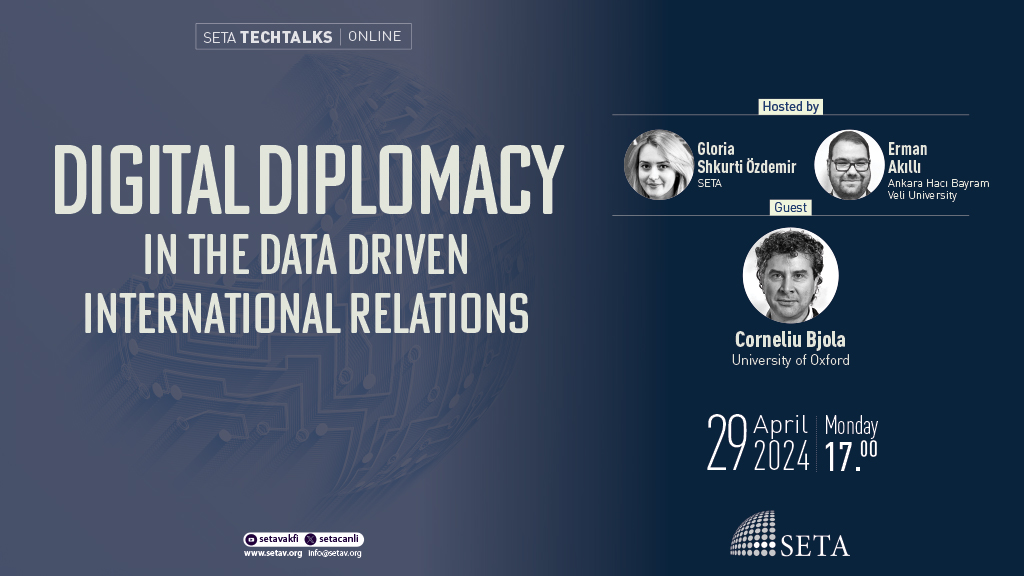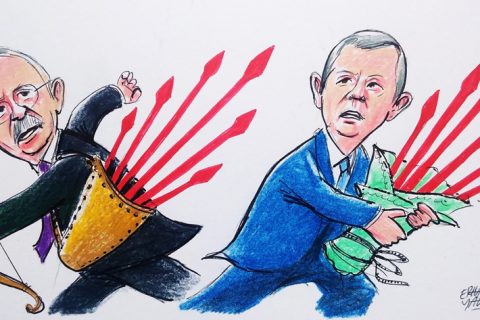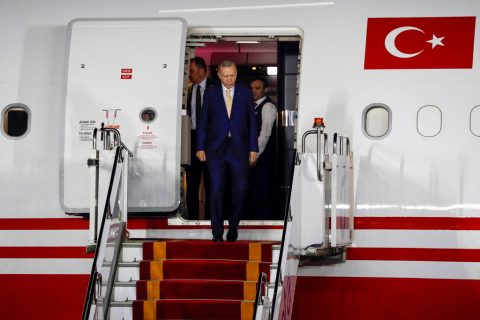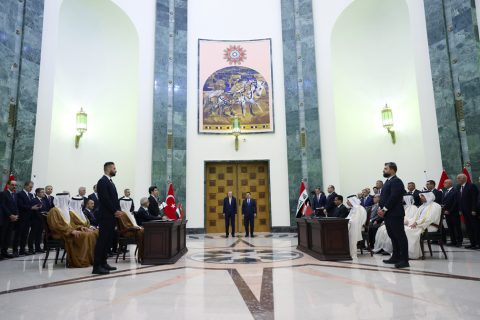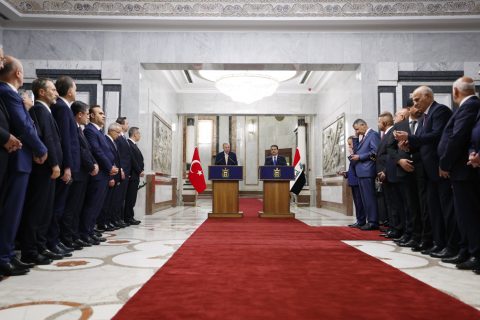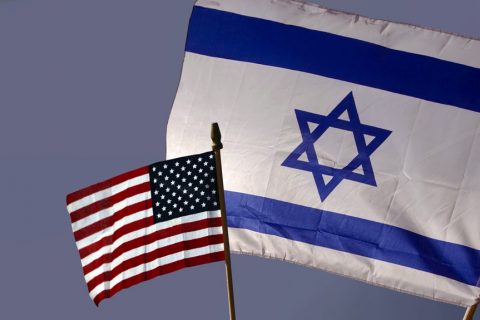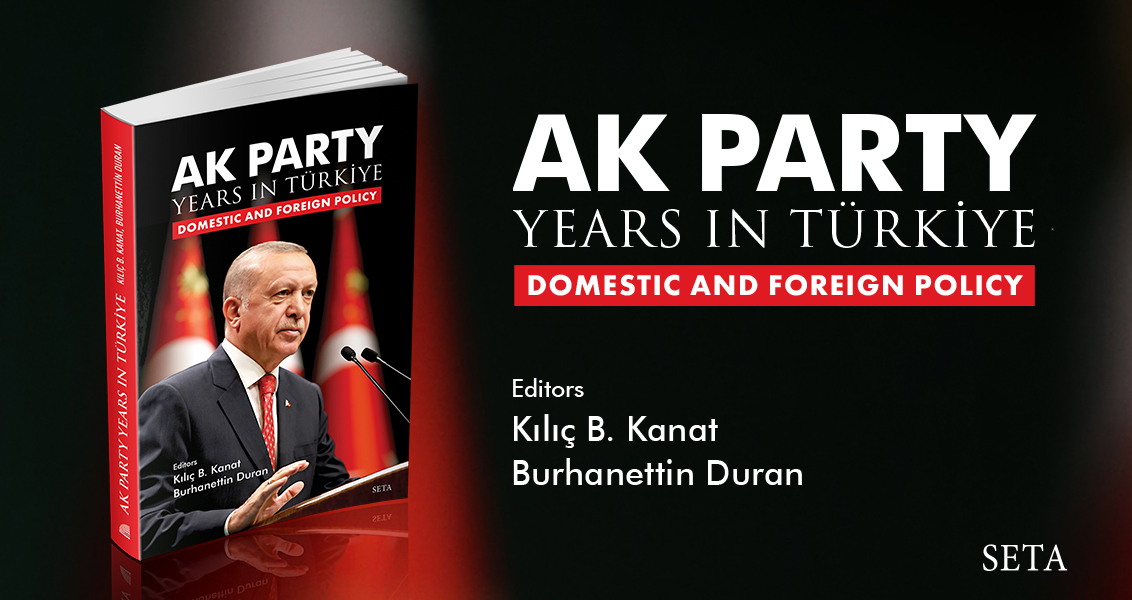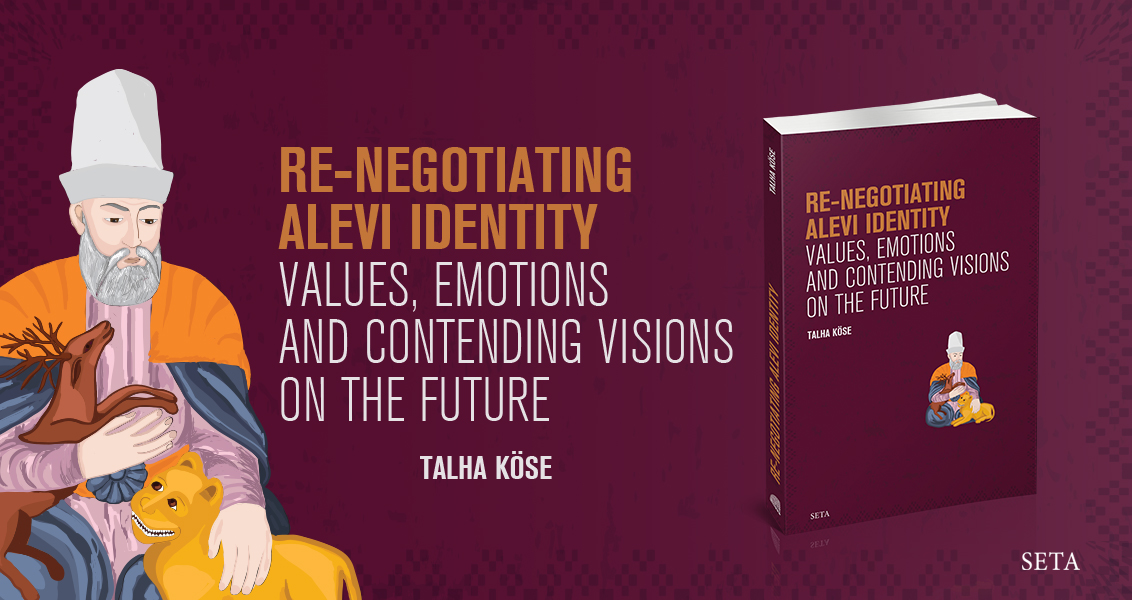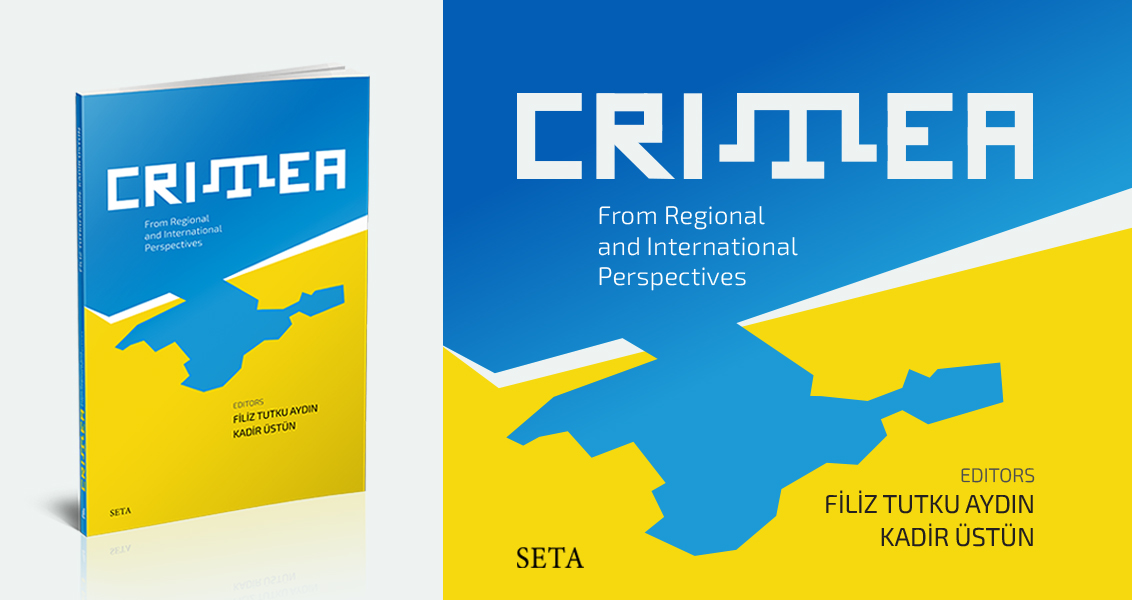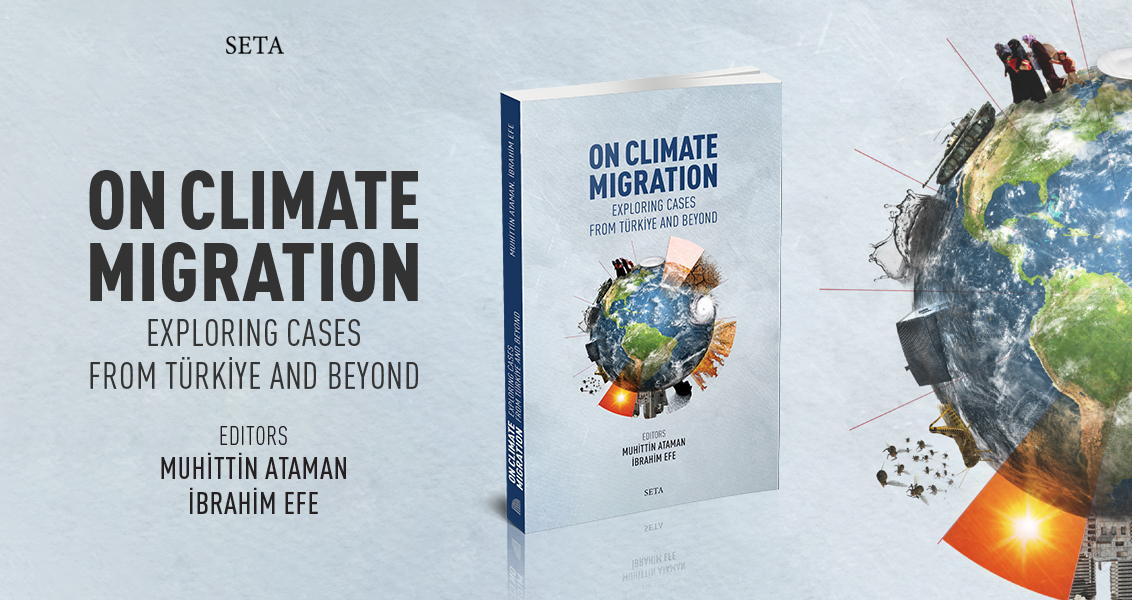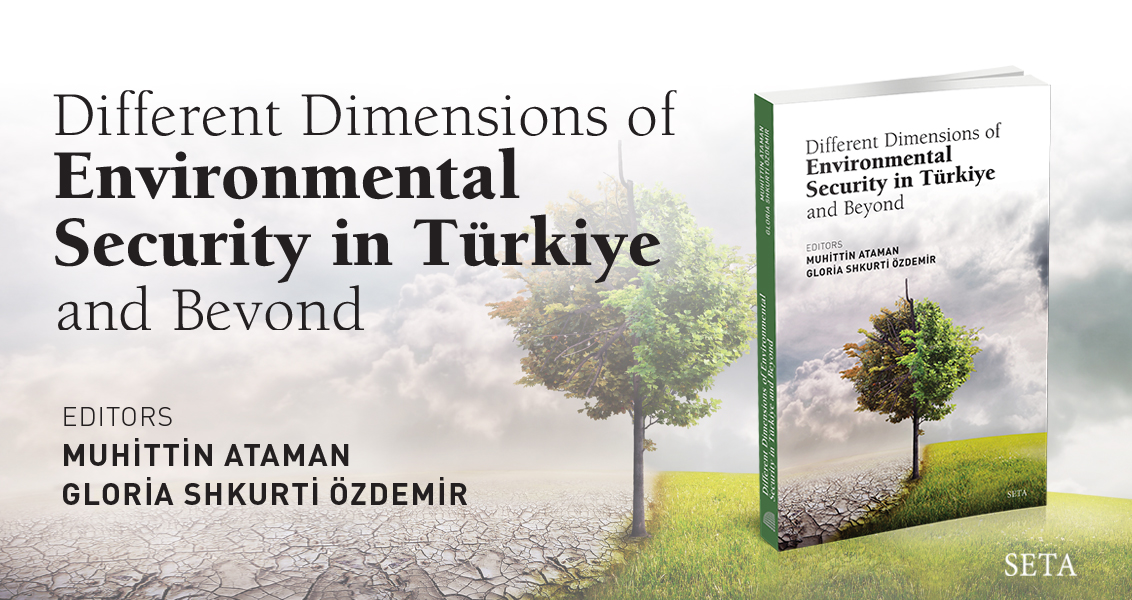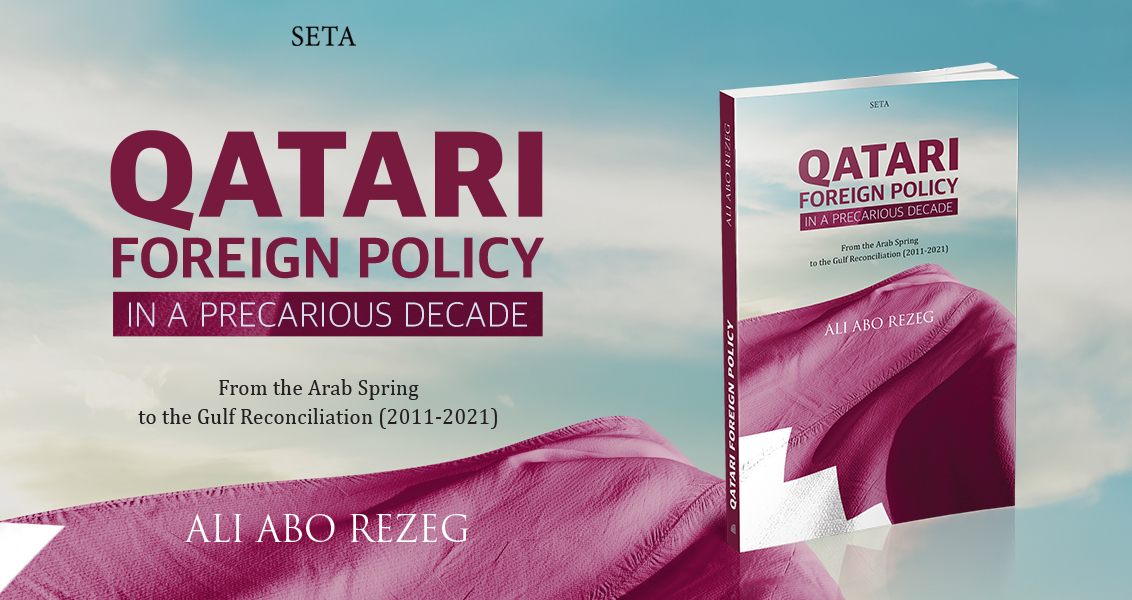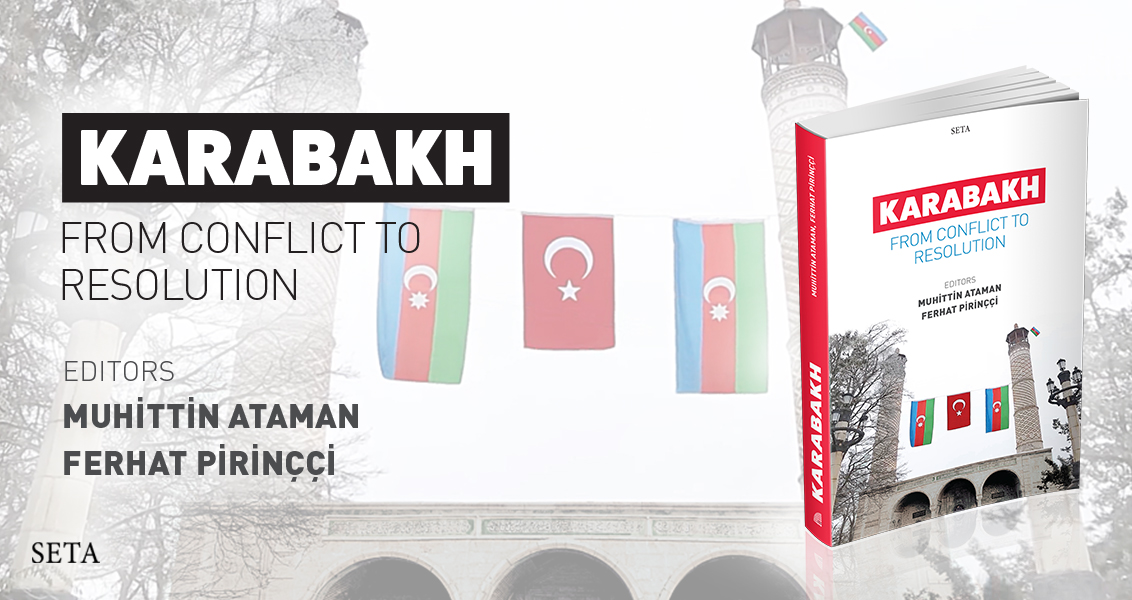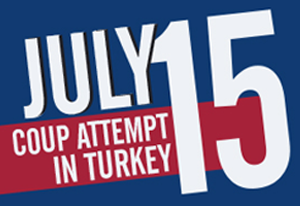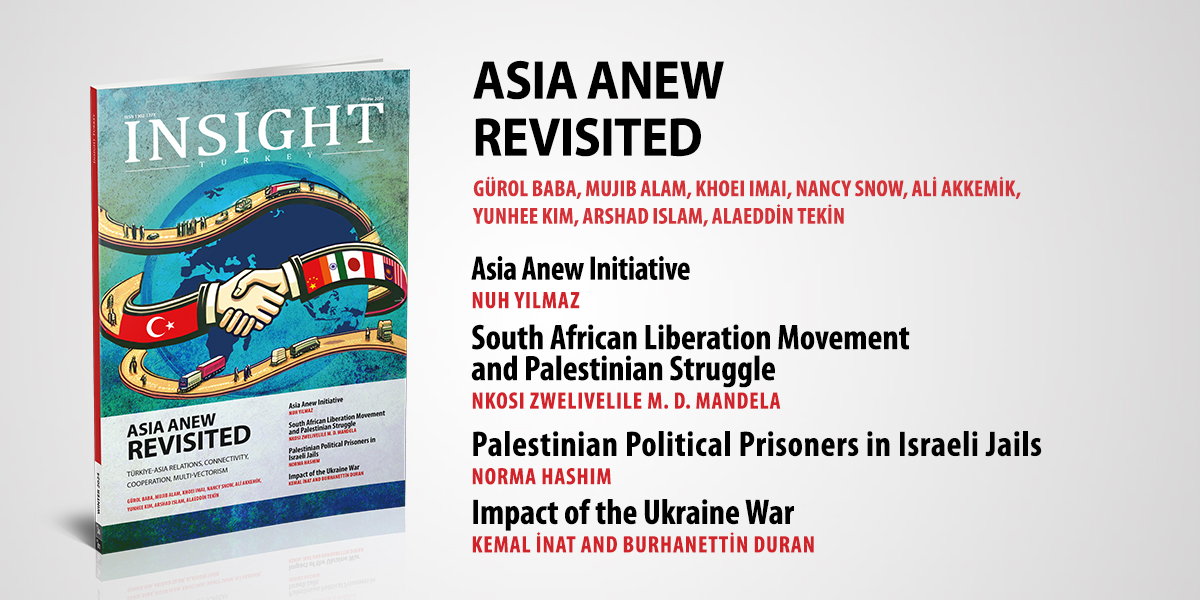
Insight Turkey Publishes Its Latest Issue “Asia Anew Revisited”
We are pleased to announce that the inaugural edition of Insight Turkey for 2024 has been published. This issue includes one commentary and six research articles delving into the diversity of Turkish foreign policy in East Asia. It offers a comprehensive analysis of contemporary Türkiye’s relations with Asian countries. Additionally, this issue also presents six pieces on other topics regarding the Palestinian crisis in Gaza, the relation between economic and military power, national brand of Japan, the citizenship law in Kosovo, and the impact of the Ukrainian war on global politics.
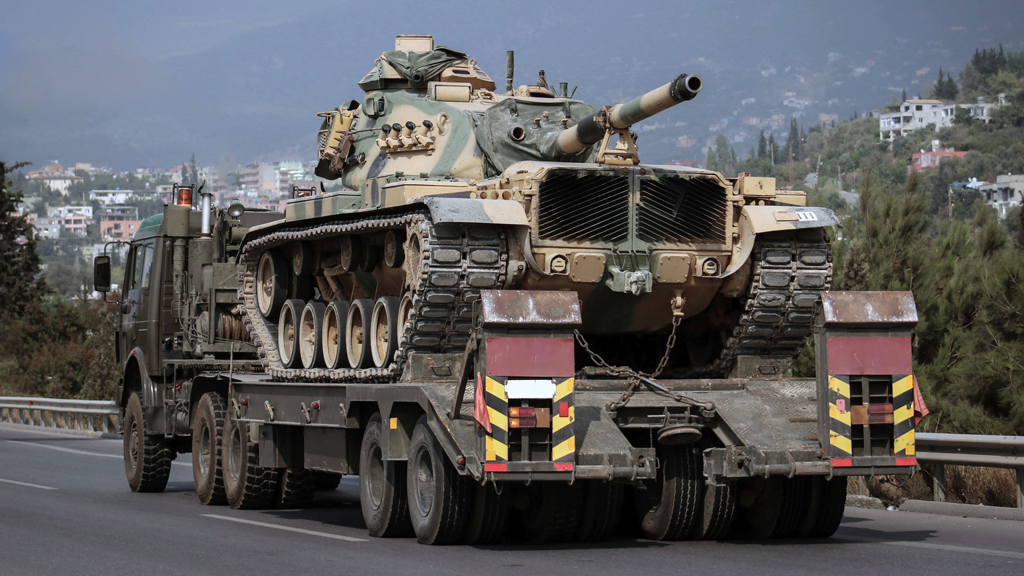
The Suspension of the Treaty on Conventional Armed Forces in Europe (CFE)
What is the significance of the CFE? Which countries suspended or has withdrawn from the CFE? Why did Turkiye suspend the practice of the CFE? Can Turkiye start an armament program exceeding the existing limits of the CFE? What could be the impact of Turkiye’s suspension?
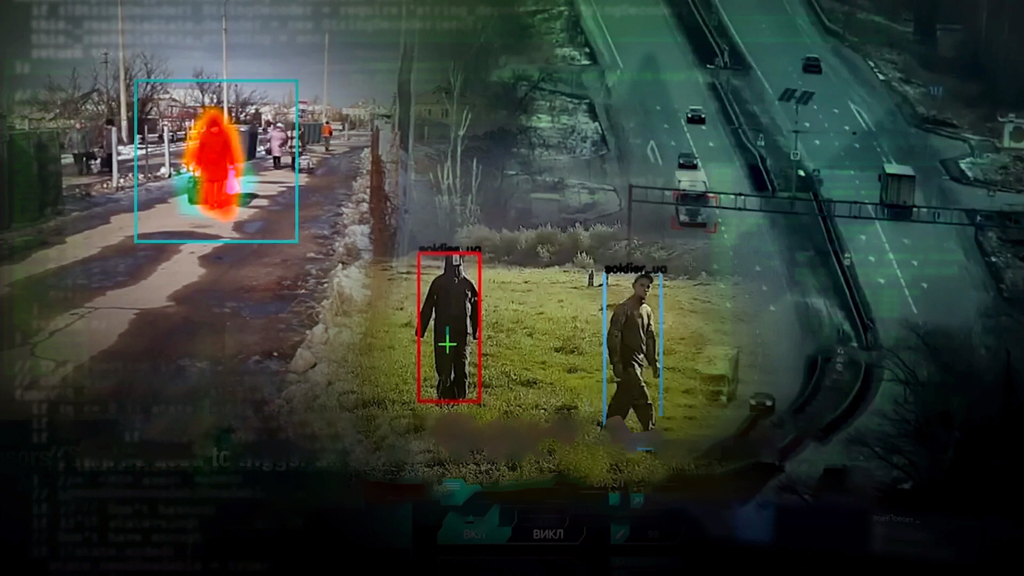
Artificial Intelligence in Counterterrorism Navigating the Intersection of Security, Ethics and Privacy
How can Artificial Intelligence (AI) technologies be used effectively for counterterrorism efforts? How does the quality of data affect the effectiveness of AI in counterterrorism? What are the ethical and privacy considerations in using AI for counterterrorism?
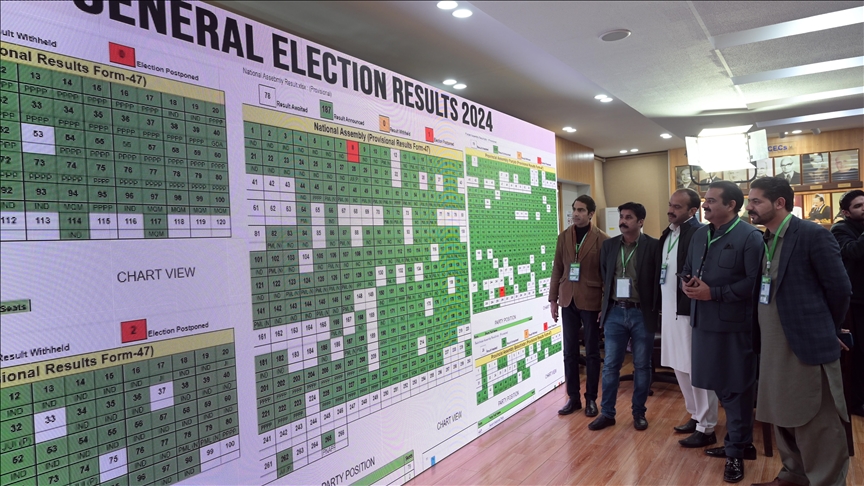
Focus: An Insight into Pakistan Election 2024
Pakistan held its highly anticipated 12th general elections on Feb. 8, 2024. The polls took place amid a highly schismatic atmosphere, political fluidity, intense economic turbulence, and pressing security concerns. Despite some extreme political repressions and the absence of a level playing field, Pakistan Tehreek-e-Insaf (PTI), led by jailed former Prime Minister Imran Khan stole the show by claiming 93 seats out of 265 contestable seats. It left behind seasoned, traditional political parties like Pakistan Muslim League-Nawaz (PML-N) with 75, Pakistan People's Party (PPP) with 54 and Muttahida Qaumi Movement (P) with just 17 seats in the National Assembly (NA). A simple majority in parliament necessitates a mandate of 169 seats, including 70 reserve seats, as per the strength of each party in the NA.
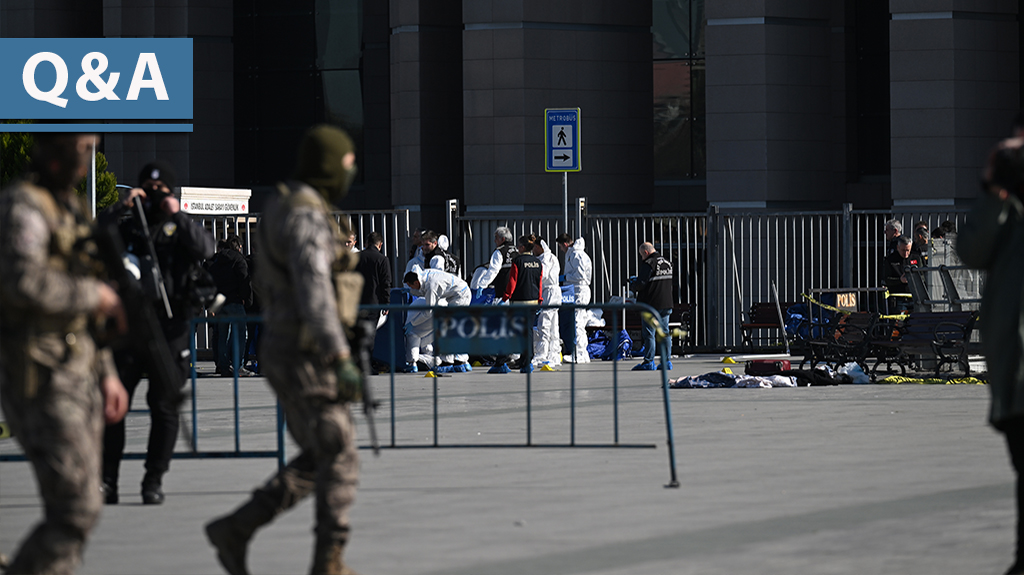
Q&A: Çağlayan Courthouse Attack
What happened? Who are the attackers? What was the goal of the attack? How is Türkiye combating DHKP-C? What does this mean for the future?
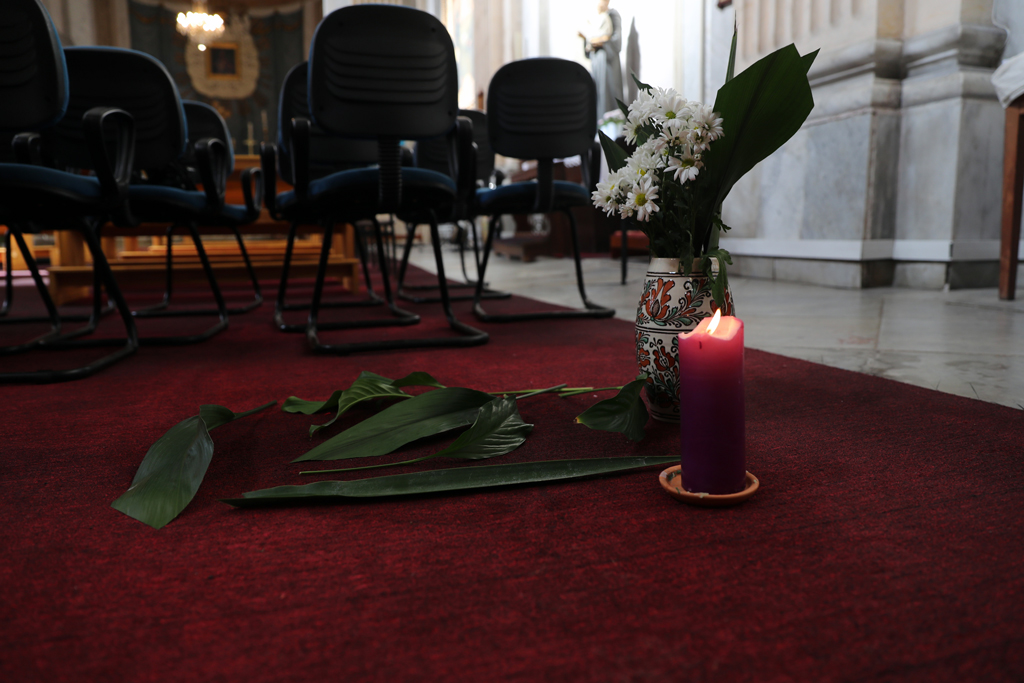
Experts Respond: Unraveling the Daesh Assault on Santa Maria Church
On Jan. 28, an armed attack occurred at the Santa Maria Church in Istanbul’s Sarıyer district, resulting in the loss of one life. The Counterterrorism and Intelligence Branch of the Istanbul Police Department arrested two foreign suspected members of the Daesh terrorist organization. Some 34 individuals, also detained in connection with the attack, were brought before a magistrate for potential arrest. The Interior Ministry reported 1,046 operations against Daesh from June 1, 2023, to present. Why did Daesh – dormant since 2017 – once again target Türkiye? Is the assault on Santa Maria Church an isolated incident, or does it signify the manifestation of the organization's broader regional plans? How can we decipher the attack given the timing, method, target, and profile of the assailants? What is the status of counterterrorism operations against Daesh? Prominent experts have provided their assessments for our readers.
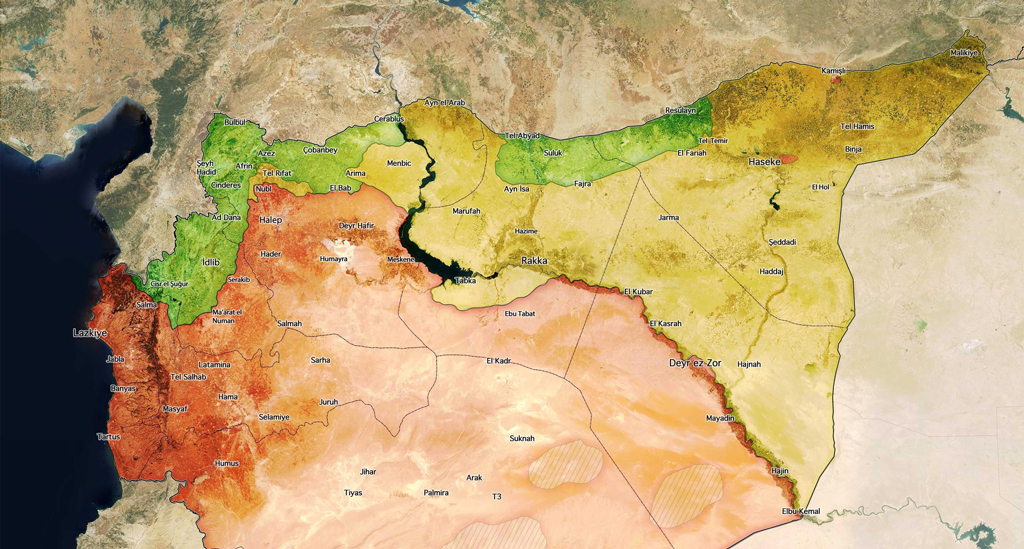
PKK/YPG’s State Dream in Syria
This report analyzes how the PKK and the PYD evolved into the SDF and the Autonomous Administration of North and East Syria with a focus on the PKK’s war crimes and human rights violations, military presence and natural resources as well as Türkiye’s military operations against the PKK/YPG. In this regard, this study represents the result of a significant effort to understand and analyze the PKK/YPG. It is also a pioneering work in academic literature.

Assessing Türkiye’s Role in the Global Space Competition
This analysis evaluates Türkiye’s national space program, its milestones, and strategic initiatives, like sending its first citizen to the International Space Station (ISS), within the context of the new space race.
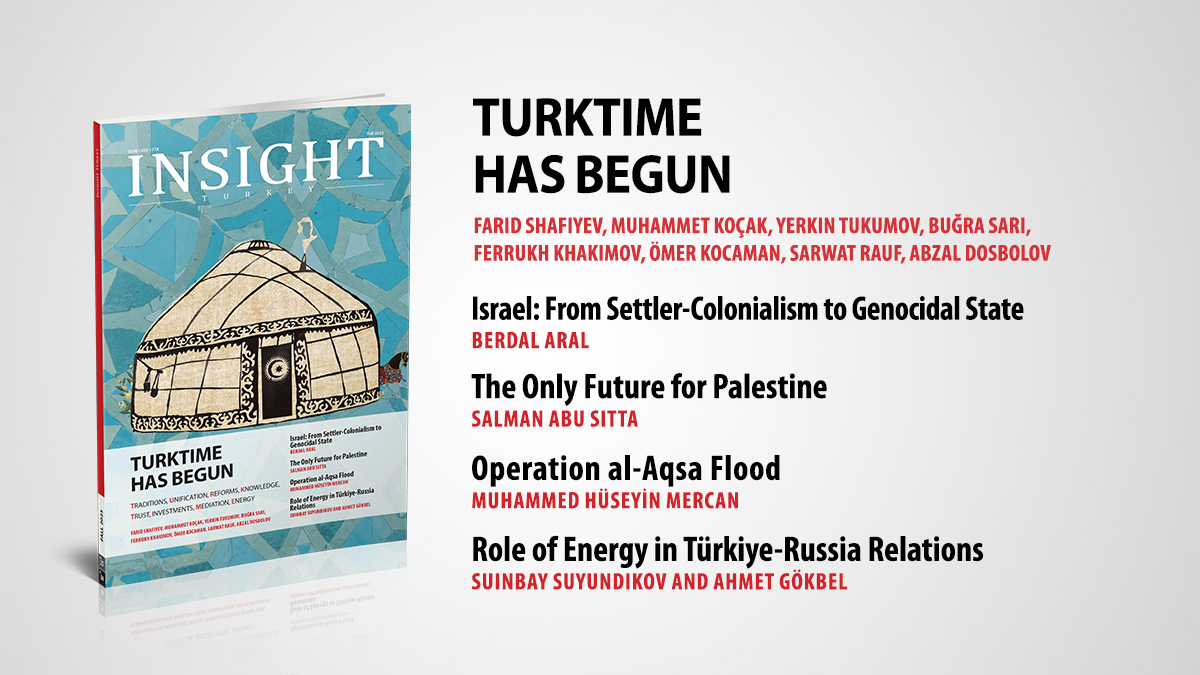
Insight Turkey Publishes Its Latest Issue “Turktime has begun”
The latest edition of Insight Turkey has been released, featuring a special focus on the Turkic World. This issue includes four insightful commentaries and four in-depth research articles, delving into various aspects of the Turkic World. Additionally, it offers four articles on other topics, notably discussing the Palestinian issue in the context of the October 7 operation and examining Türkiye-Russia energy relations.

SETA Security Radar | Türkiye’s Geopolitical Landscape in 2024
In this new volume of SETA Security Radar, we analyze the main dynamics shaping Türkiye’s security and geopolitical landscape with references to the most significant foreign policy and security issues throughout 2023.

Navigating the EU AI Act: Exploring Challenges Amidst the Evolving Global Regulatory Landscape
What is the EU AI Act? What are the main challenges it may face? What is the impact of this regulation within the global regulatory landscape?
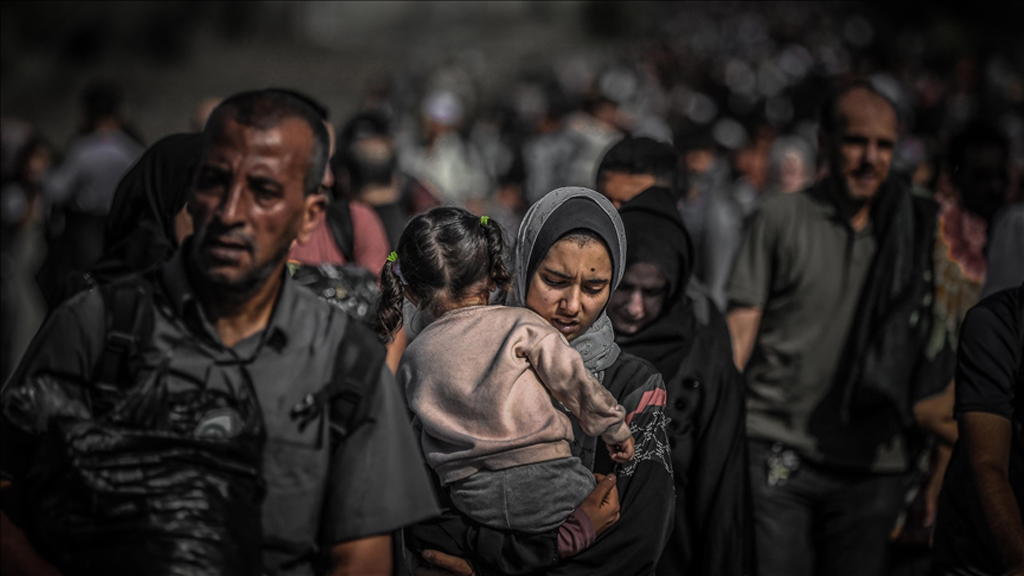
Israel’s Attacks on Gaza a Military and Political Assessment
This analysis aims to examine the current situation in the military and political context of Hamas’s October 7 operation and Israel’s ongoing operations.
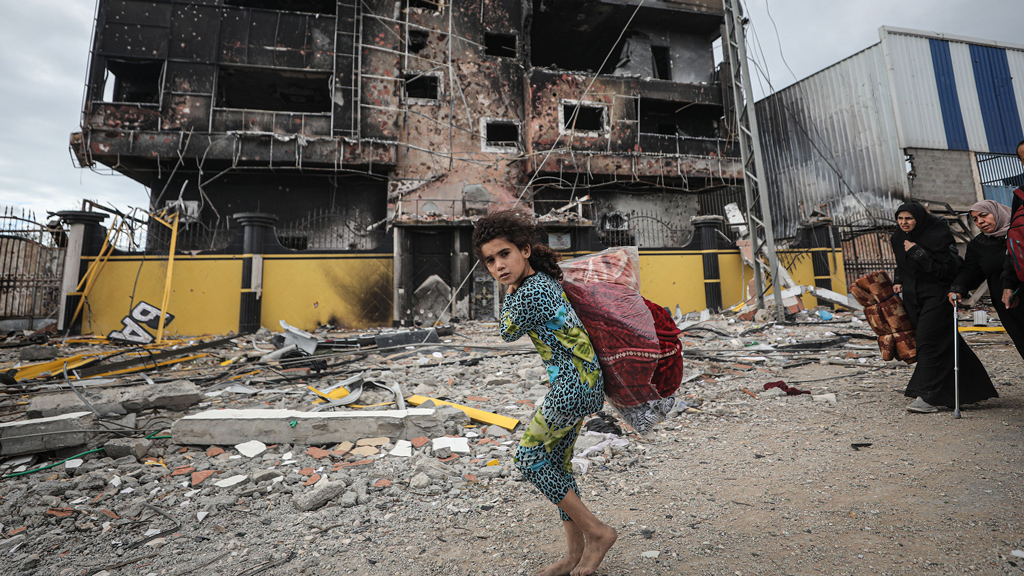
Habermas and Others | The West’s Intellectual World and Blindness Toward Palestine
What was the post-Oct. 7 stance of Western thinkers and intellectuals? Why does the Western intellectual world ignore Palestine? Why have thinkers, who believe the Palestinians are right and support them, become targets of ‘lynching’?
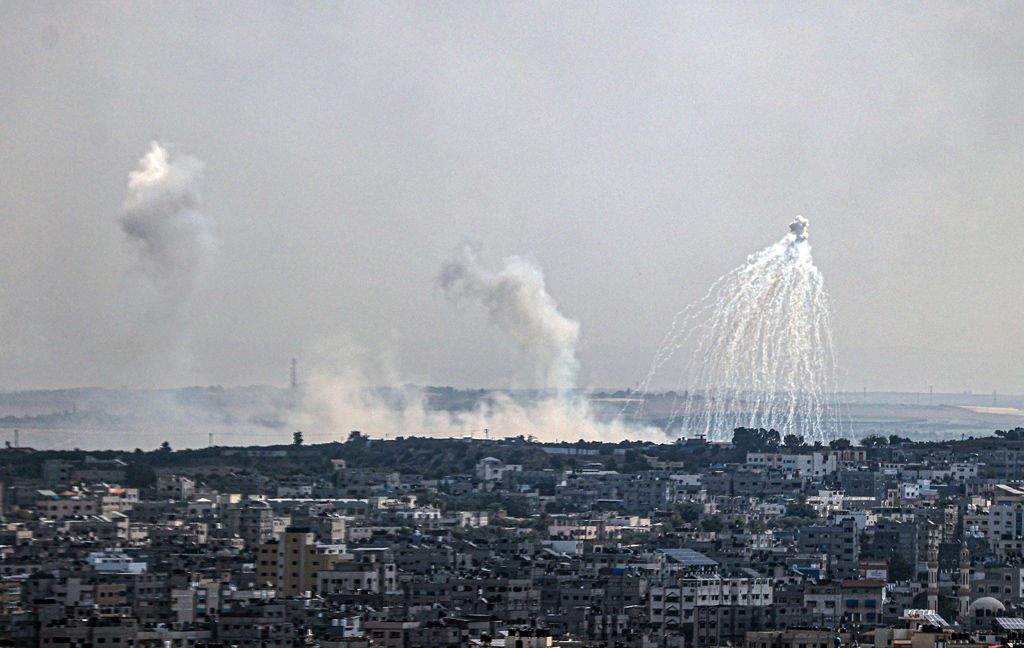
Israel’s Crimes in Gaza
This study presents the relevant parts of international law before engaging in a legal assessment of Israel’s actions in Gaza.

Assessing the US Executive Order on AI from a Global Perspective
On October 30, 2023, President Biden took a significant step by signing an executive order that charts a course for the utilization of AI in the United States, aiming to both harness its potential and mitigate the associated risks. Before this directive, it's crucial to note that President Trump made history by signing two executive orders in 2019 and 2020, marking the initial official forays into AI governance by an American president. Trump's focus primarily centered on how the government uses AI and strategies to maintain U.S. leadership in this field. In contrast, since assuming office, President Biden's official approach to AI has predominantly emphasized ethical and responsible implementation. His primary focus is ensuring that the application of AI adheres to ethical standards and societal responsibility, particularly in its impact on American citizens.
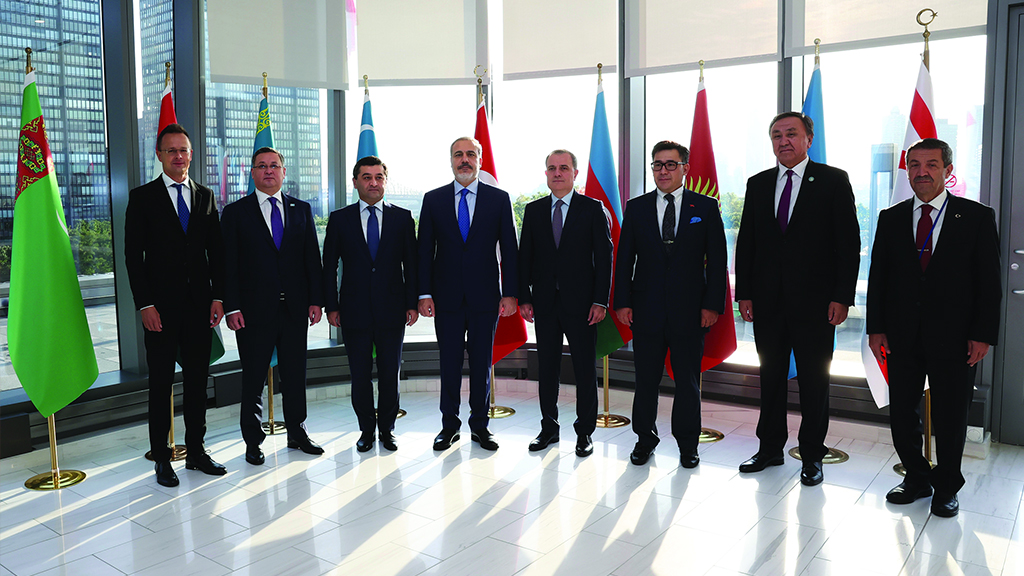
Turkish Foreign Policy at the Turn of the ‘Century of Türkiye’: Challenges, Vision, Objectives, and Transformation
Hakan Fidan’s commentary underscores the dynamic shifts in geopolitical landscapes, the escalating global challenges, and the position of Türkiye in this changing international system. He emphasizes Türkiye’s aspiration to emerge as a pivotal player, characterized by inclusivity and efficacy, capable of addressing the pressing global and regional issues. Fidan asserts that in this 21st century, Türkiye is resolutely committed to shaping the foundations for enduring peace and prosperity within its region and beyond, all while adeptly safeguarding its national interests amidst a turbulent global milieu.
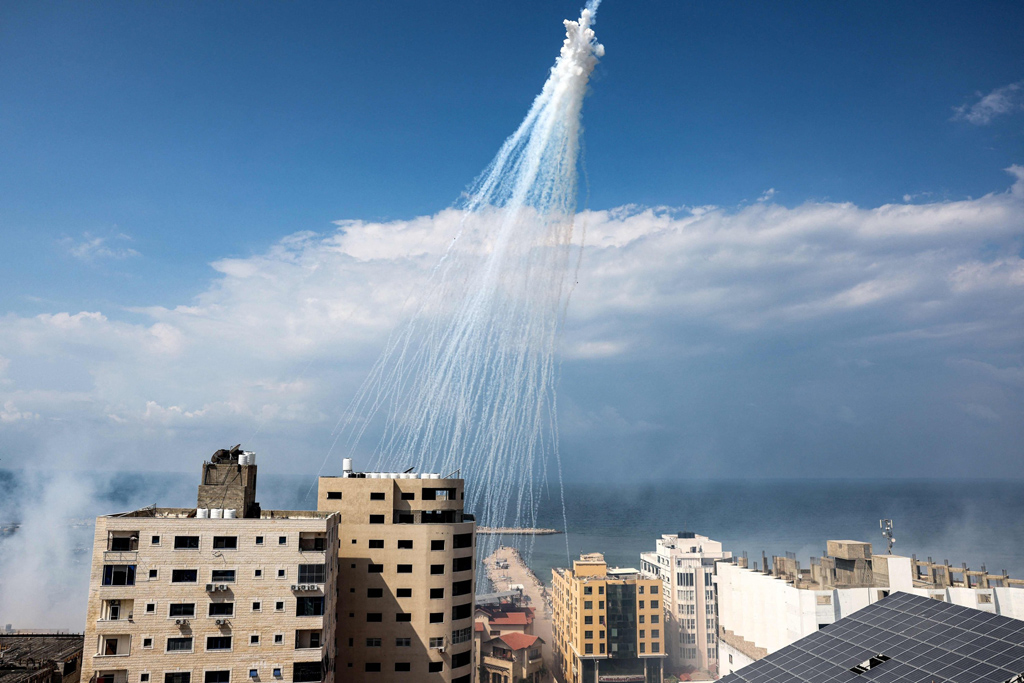
The meaning of the Hamas attack
Hamas initiated a large incursion into some Israeli cities last weekend, which has led to a new cycle of violence in Palestine. So far, around 900 Israelis have been killed and more than 2,600 people wounded. In addition, Hamas has taken more than 100 people, including many soldiers, as hostages. On the Palestinian side, about 700 people were killed by the Israeli security forces, and several thousands of people were wounded.
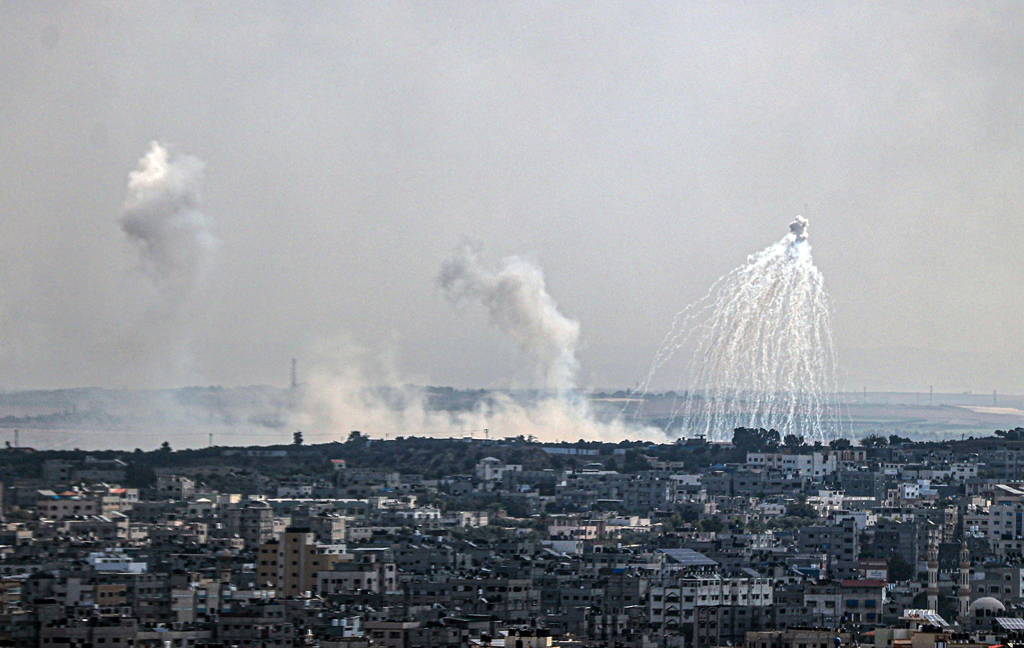
The Palestinian-Israeli Conflict in the Context of International Law
Operation Al-Aqsa Flood was launched on Saturday, October 7 against Israel from the Gaza Strip, which has been under Israeli blockade since 2007. It has once again become necessary to address the many legal issues such as the rights and responsibilities of the Palestinian and Israeli sides in the context of international law, as well as the legality of their actions and methods.
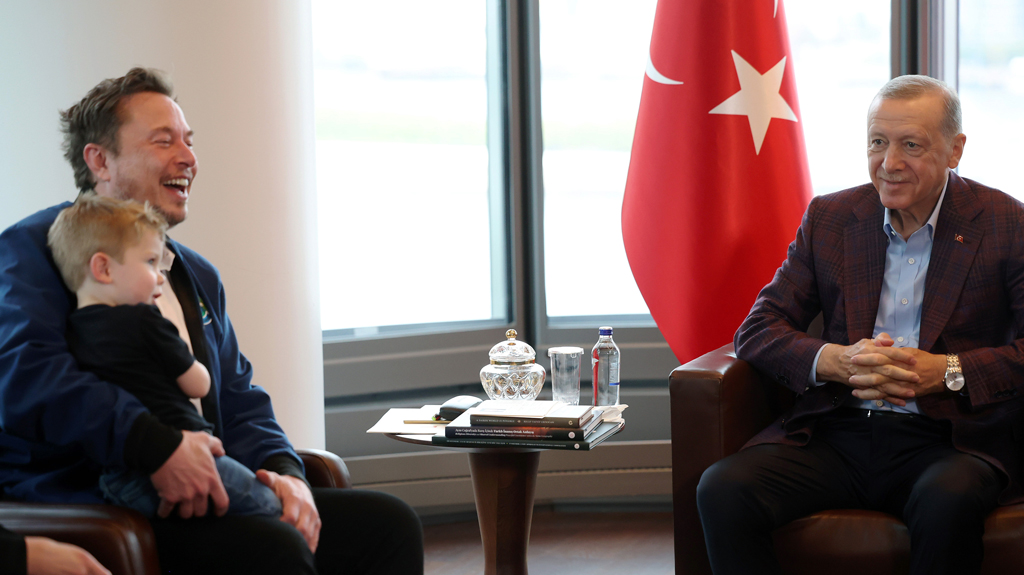
How to Understand Erdoğan-Musk Meeting: Main Agenda and Its Significance
Turkish President Recep Tayyip Erdoğan arrived in New York on Sunday to participate in the 78th United Nations General Assembly. During the visit, he is also set to hold a series of meetings with world leaders and influential entrepreneurs. One of the meetings garnering significant attention was the one between President Erdoğan and Elon Musk, the renowned founder of Tesla and SpaceX.
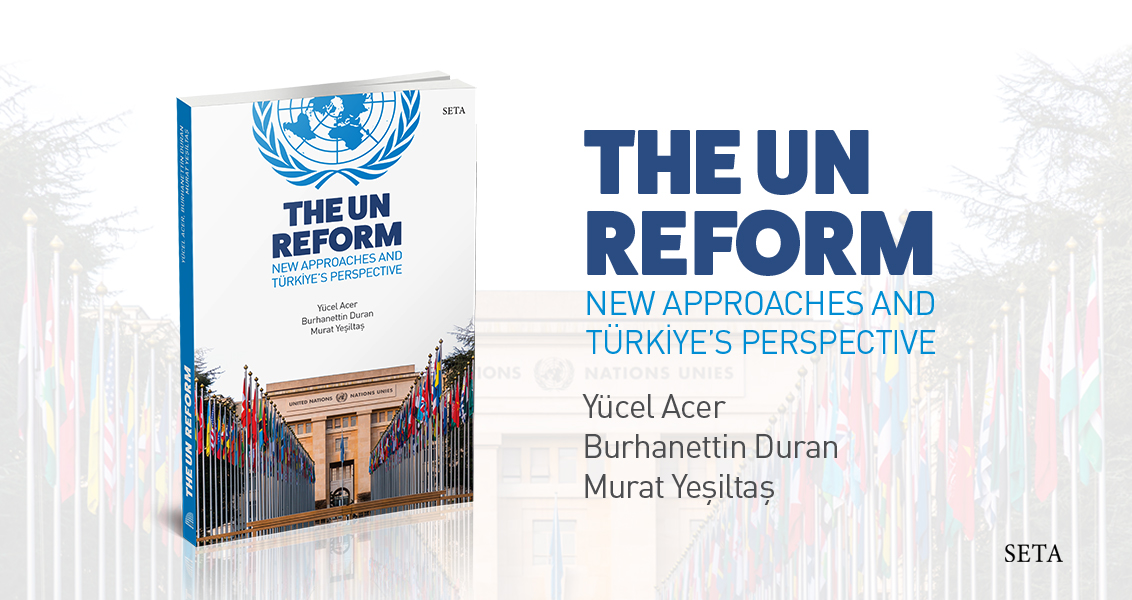
The UN Reform
This book brings together some analyses of UN reform proposals in general and some proposals that come from the states that form regional groups to reflect their commonalities and communalities in the process.
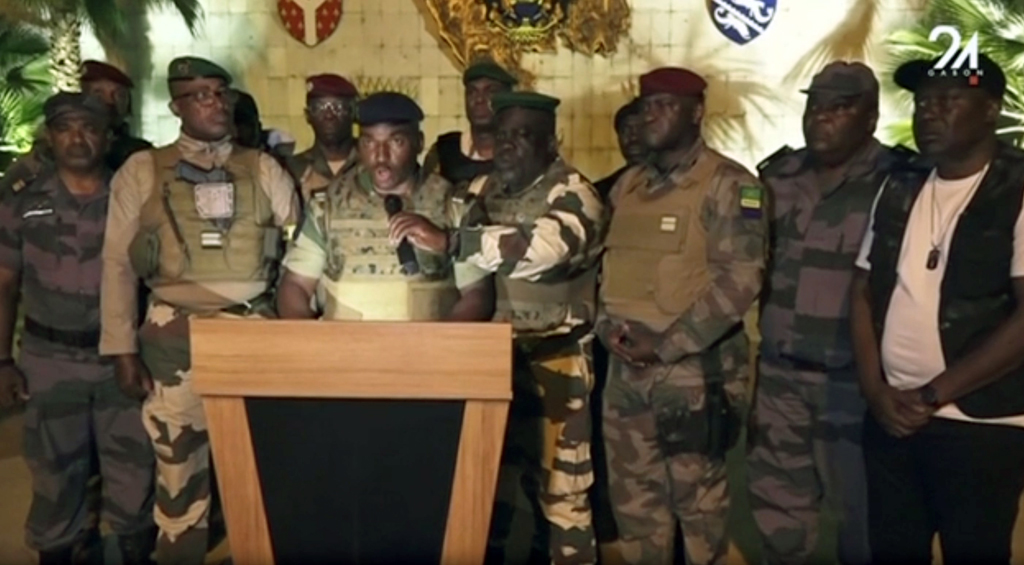
“African Spring”? or the “Spring of Coups”?: The Meaning of Developments in Africa
The African continent is currently facing a series of major problems and challenges today. Among them is a growing trend of military interventions particularly in West Africa and the Sahel region, the latest of which has taken place in the Central African country of Gabon. It was reportedly carried out under the leadership of General Brice Clotaire Oligui Nguema. After Mali, Burkina Faso, Guinea, and Niger, Gabon saw the eighth such incident since 2020 and it seems to have created a "coup ecosystem" in the continent. However, the development in Gabon should not be considered the same as Niger because the former has a structure other than the dynamics in Niger. The reasons for the intervention in Gabon also differ from the intervention in Niger. In this context, the Gabonese military intervention emerged due to political elections, while security concerns and poor governance drove the interventions in Niger and some other countries. After it was announced that Ali Bongo, who has been in power in Gabon for 14 years, received 64% of the votes in the elections held on Aug. 26, the army announced it had seized power. "On behalf of Gabonese people, we have decided to put an end to the current regime and defend peace," the group within the army said, adding that the election results were shady and the elections were to be canceled. However, it should be noted that the group within the army is led by Ali Bongo's cousin Nguema.
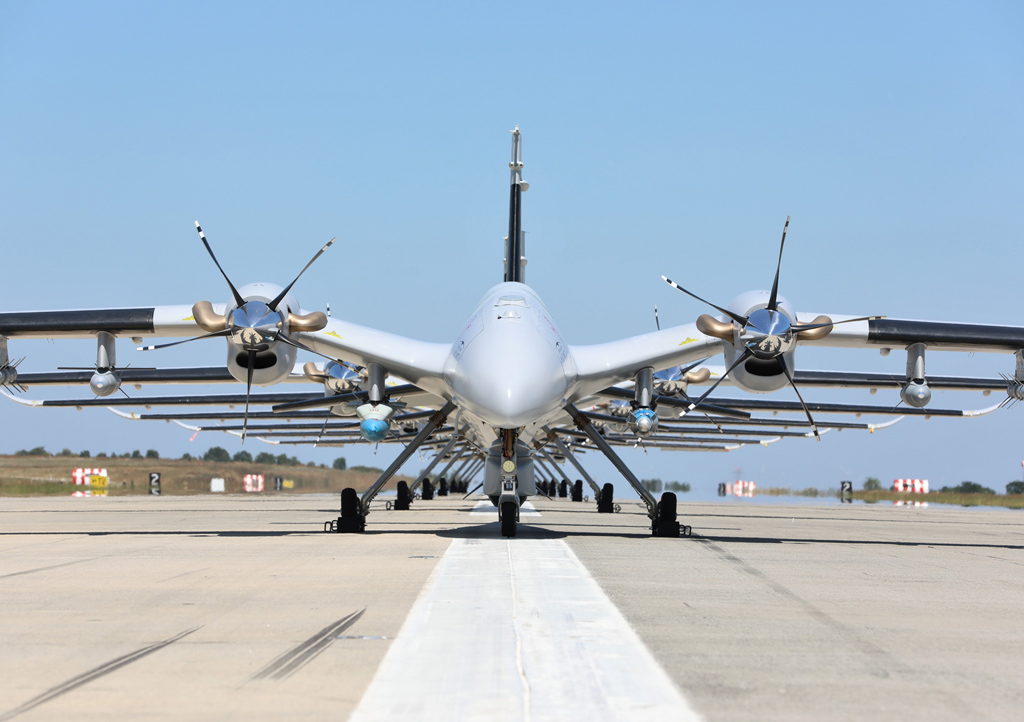
Remote Control | Aerial Elimination of the PKK’s Terrorist Leaders and Operatives
Delving into the core of this study, we leverage data derived from two distinguished repositories—the Terrorism Analysis Platform and Türkiye’s Enemy Killed in Action Dataset—to compose an authoritative report. Our focus lies on the profound examination of the intricate effects of UAV deployment in counterterrorism endeavors, particularly pertaining to the PKK’s organizational structure, command hierarchy, recruitment of skilled human resources, access to essential material resources, and the dynamic tactical metamorphosis undergone by the terrorist organization. Through this rigorous analysis, we aim to shed illuminating light on the multifaceted role of UAVs and their profound impact on the protracted battle against terrorism.
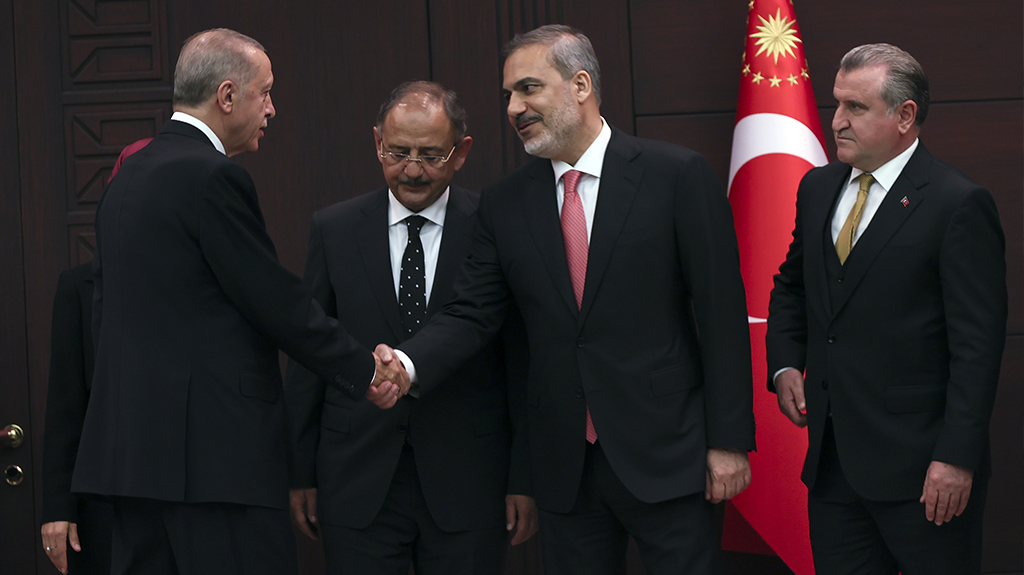
Navigating The New Era | The Priorities of Turkish Foreign Policy in the Post-Election Landscape
This analysis will first address the factors that will determine the direction of Turkish foreign policy in the new era. It will then provide evaluations regarding a possible approach to its relations with the actors involved in the most important and prioritized issues of Turkish foreign policy, with a geographical perspective.
- Opinion
How long will CHP Chair Özgür Özel’s new politics last?
Since taking over as chairperson of the Republican People’s Party (CHP), Özgür Özel has notably distanced himself from his "polemicist" style of his tenure as minority whip. Many wonder why the new Republican leader, who adopted this approach prior to the March 31 municipal elections and remained committed to it thereafter, is doing what he is doing and how long he intends to do it.
- Opinion
Özel and Kılıçdaroğlu’s ‘political’ showdown
The Republican People's Party's (CHP) current and previous leaders are fighting over the kind of politics that the movement should embrace in the future.
- Opinion
Erdoğan’s landmark visit to Iraq
President Recep Tayyip Erdoğan’s recent visit to Iraq could mark the beginning of a new chapter in the longstanding relationship between Türkiye and Iraq. During his visit to Baghdad, Türkiye and Iraq signed a strategic framework agreement that addresses a variety of issues, ranging from security to economic cooperation. This agreement represents the culmination of nearly a year of productive high-level discussions between the two countries. Furthermore, President Erdoğan’s first visit to Iraq since 2011 has established new connections between Türkiye, Iraq, the United Arab Emirates (UAE) and Qatar, enhancing the region’s geo-economic landscape.
- Opinion
A fresh start in Türkiye-Iraq relations
Under the strategic framework agreement for joint cooperation, which the two countries inked in Baghdad, their bilateral relations have been elevated to the level of strategic partnership with a “qualitative leap.” The Turkish and Iraqi governments created a road map for future cooperation. Their commitment to solving problems and elevating their cooperation to the highest level rests on the “win-win” principle. Accordingly, the Turkish delegation, which included eight Cabinet ministers, focused on a broad range of issues, including counterterrorism, cross-border waters, security, the defense industry, trade, health care, communication, education, energy and transportation.
- Opinion
Turning point in Türkiye-Iraq relations
President Recep Tayyip Erdoğan paid an official one-day visit to Iraq on Monday. He was accompanied by a large delegation, including Foreign Minister Hakan Fidan, Interior Minister Ali Yerlikaya, Defense Minister Yaşar Güler, Trade Minister Ömer Bolat, Energy Minister Alpaslan Bayraktar, Minister of Transportation and Infrastructure Abdülkadir Uraloğlu, Minister of Agriculture and Forestry Ibrahim Yumaklı and Minister of Industry and Technology Fatih Kacır. Many high-ranking Turkish officials also accompanied President Erdoğan.
- Opinion
The ‘tragedy’ of US policy vis-a-vis Israel
The Biden administration seems to have at least temporarily succeeded in preventing Iran's direct attack on Israel from escalating into an uncontrolled war. The White House conveyed the message to Israel through various channels that any attack on Iran should be 'proportional,' also signaling to the Netanyahu government that US support for Israel would be limited to defense. With the assistance of the United States, the United Kingdom, and Jordan, Iran's UAVs and missiles were intercepted before reaching Israeli airspace, making the job of the Iron Dome relatively easier. However, Iran's low-intensity and controlled attack with low-cost weapons demonstrated that in a more 'real' war, Israel's task would be far from easy. The attack, which brought the urgency of Israel's defense to the forefront, seems to pave the way for a vote on a long-delayed aid package for Israel, Ukraine, and Taiwan in the House of Representatives. The fact that American foreign aid could reach the approval stage thanks to the attack on Israel indicates how much the issues that bring Republicans and Democrats together have decreased.
New Books
Latest News
Featured
-
How long will CHP Chair Özgür Özel’s new politics...
Since taking over as chairperson of the Republican People’s Party (CHP), Özgür Özel has notably distanced himself from his "polemicist" style of his tenure as minority whip. Many wonder why the new Republican leader, who adopted this approach prior to the March 31 municipal elections and remained committed to it thereafter, is doing what he is doing and how long he intends to do it.
-
Özel and Kılıçdaroğlu’s ‘political’ showdown
The Republican People's Party's (CHP) current and previous leaders are fighting over the kind of politics that the movement should embrace in the future.
-
Erdoğan’s landmark visit to Iraq
President Recep Tayyip Erdoğan’s recent visit to Iraq could mark the beginning of a new chapter in the longstanding relationship between Türkiye and Iraq. During his visit to Baghdad, Türkiye and Iraq signed a strategic framework agreement that addresses a variety of issues, ranging from security to economic cooperation. This agreement represents the culmination of nearly a year of productive high-level discussions between the two countries. Furthermore, President Erdoğan’s first visit to Iraq since 2011 has established new connections between Türkiye, Iraq, the United Arab Emirates (UAE) and Qatar, enhancing the region’s geo-economic landscape.
-
A fresh start in Türkiye-Iraq relations
Under the strategic framework agreement for joint cooperation, which the two countries inked in Baghdad, their bilateral relations have been elevated to the level of strategic partnership with a “qualitative leap.” The Turkish and Iraqi governments created a road map for future cooperation. Their commitment to solving problems and elevating their cooperation to the highest level rests on the “win-win” principle. Accordingly, the Turkish delegation, which included eight Cabinet ministers, focused on a broad range of issues, including counterterrorism, cross-border waters, security, the defense industry, trade, health care, communication, education, energy and transportation.
-
Turning point in Türkiye-Iraq relations
President Recep Tayyip Erdoğan paid an official one-day visit to Iraq on Monday. He was accompanied by a large delegation, including Foreign Minister Hakan Fidan, Interior Minister Ali Yerlikaya, Defense Minister Yaşar Güler, Trade Minister Ömer Bolat, Energy Minister Alpaslan Bayraktar, Minister of Transportation and Infrastructure Abdülkadir Uraloğlu, Minister of Agriculture and Forestry Ibrahim Yumaklı and Minister of Industry and Technology Fatih Kacır. Many high-ranking Turkish officials also accompanied President Erdoğan.
